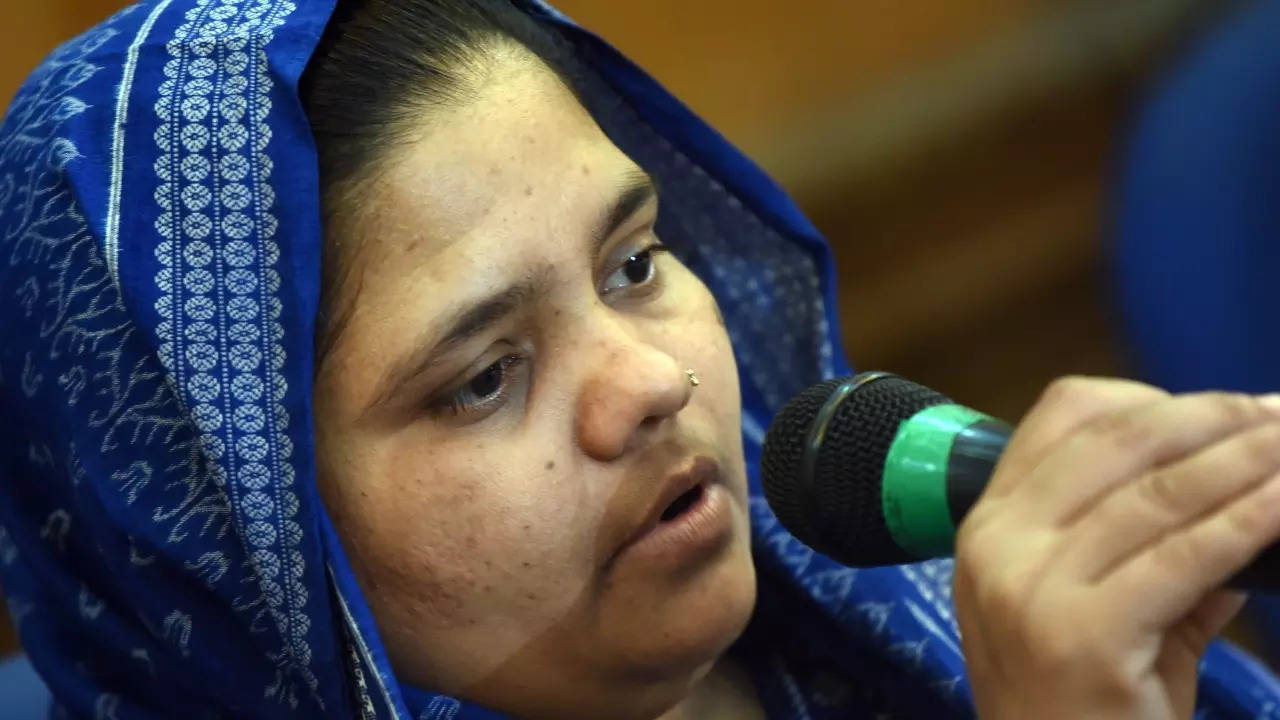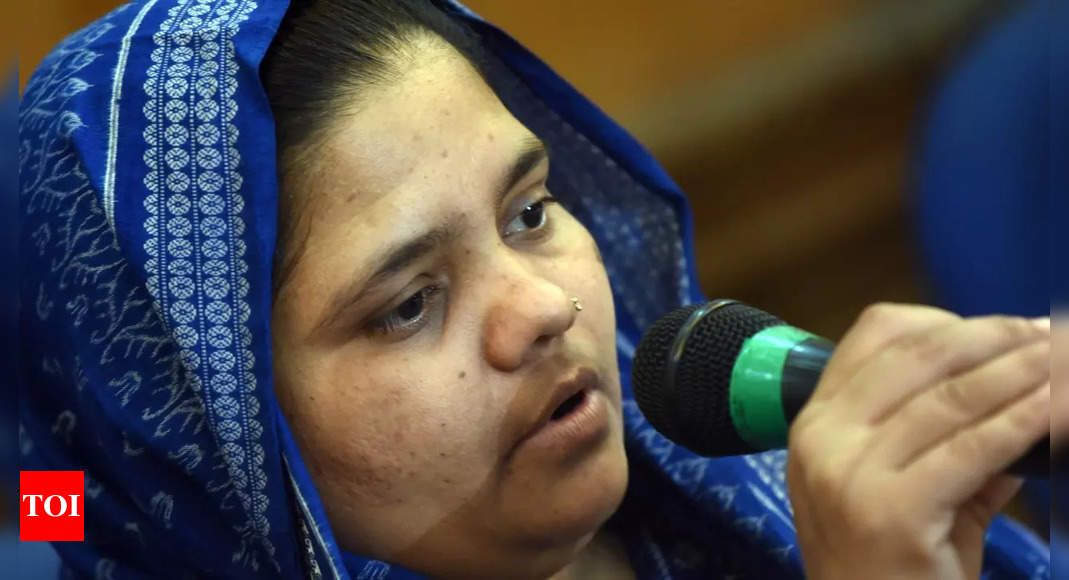
NEW DELHI: One of the 11 convicts, all of whom have been granted remission in the case of gang rape of Bilkis Bano and killing of 14 of her family members during the 2002 Gujarat riots, told the Supreme Court on Thursday that reformation is the main purpose of criminal justice system and that there was no error in the decision of the Gujarat government in granting them the same.
Appearing before a bench of Justices B V Nagarathna and Ujjal Bhuyan, senior advocate Sidharth Luthra submitted that reformation is the ultimate aim of the criminal justice system, except for those offences which fall within the rarest of rare cases where deterrence is the central objective.
Luthra, appearing for one of the 11 convicts, also submitted that non-payment of penalty by the convicts, which was imposed at the time of conviction, would not affect the remission. He was countering the submission of Bilkis Bano and other petitioners who contended that the Gujarat government’s decision to grant premature release was illegal as the convicts did not complete their sentence to be eligible for remission and did not pay the fine imposed on them.
“The remission is illegal as a convict can be eligible for premature release only after serving the sentence. As they did not pay the fine so they have to complete the default sentence and the remission given to them interfered with the judicial proceedings,” they had submitted, adding that the total fine come to around Rs 34,000.
Luthra, however, contended that the fine imposed by the court is not part of the sentence and informed the bench that his client has now paid the amount in the trial court to end the controversy.
A batch of petitions were filed in the apex court soon after all the eleven convicts were granted remission on August 15 last year. CPM leader Subhasini Ali, TMC MP Mahua Moitra, journalist Revati Laul and Roop Rekha Verma, former vice-chancellor of Lucknow University, are some of the petitioners.
Appearing before a bench of Justices B V Nagarathna and Ujjal Bhuyan, senior advocate Sidharth Luthra submitted that reformation is the ultimate aim of the criminal justice system, except for those offences which fall within the rarest of rare cases where deterrence is the central objective.
Luthra, appearing for one of the 11 convicts, also submitted that non-payment of penalty by the convicts, which was imposed at the time of conviction, would not affect the remission. He was countering the submission of Bilkis Bano and other petitioners who contended that the Gujarat government’s decision to grant premature release was illegal as the convicts did not complete their sentence to be eligible for remission and did not pay the fine imposed on them.
“The remission is illegal as a convict can be eligible for premature release only after serving the sentence. As they did not pay the fine so they have to complete the default sentence and the remission given to them interfered with the judicial proceedings,” they had submitted, adding that the total fine come to around Rs 34,000.
Luthra, however, contended that the fine imposed by the court is not part of the sentence and informed the bench that his client has now paid the amount in the trial court to end the controversy.
A batch of petitions were filed in the apex court soon after all the eleven convicts were granted remission on August 15 last year. CPM leader Subhasini Ali, TMC MP Mahua Moitra, journalist Revati Laul and Roop Rekha Verma, former vice-chancellor of Lucknow University, are some of the petitioners.
Source link

